Above ground pool maintenance tips: 5 steps to keep yours in top condition
Our advice on above ground pool maintenance will help keep the water sparkling clean

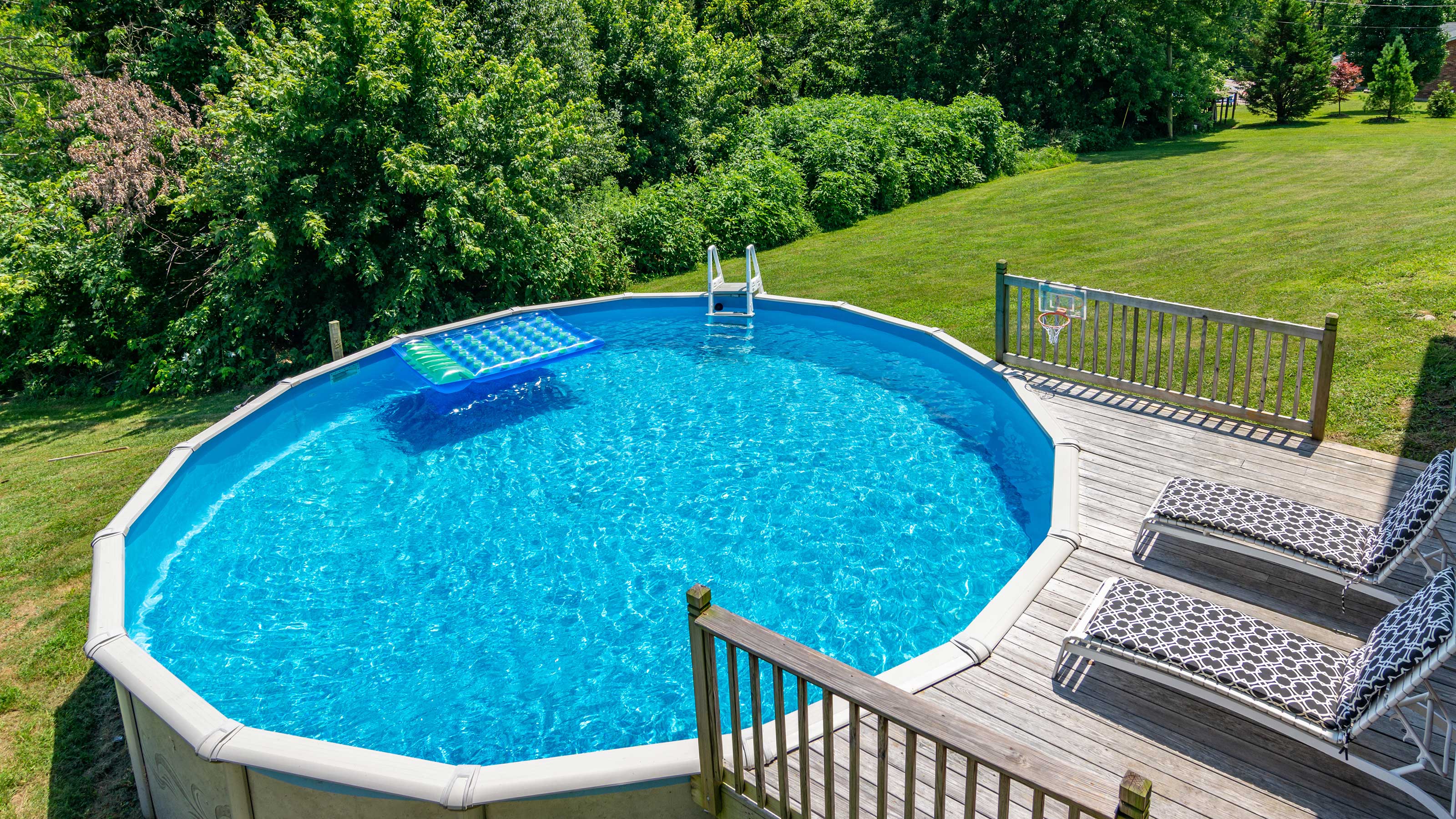
Above ground pool maintenance is crucial for keeping these backyard features clean – no one wants to take a dip in murky, dirty water.
But not only that, looking after your pool properly can help prolong its life and delay you from having to buy a new one. As they aren't the cheapest of features, this is definitely another good incentive to keep yours in tip-top condition.
Whatever above ground pool ideas you're considering for your plot – whether concrete, wooden-clad, or vinyl, surrounded by lush planting or a deck – there are a few key steps involved when caring for it. Our advice explains all, so you and your family can enjoy cooling off in crystal clear water when temperatures soar.
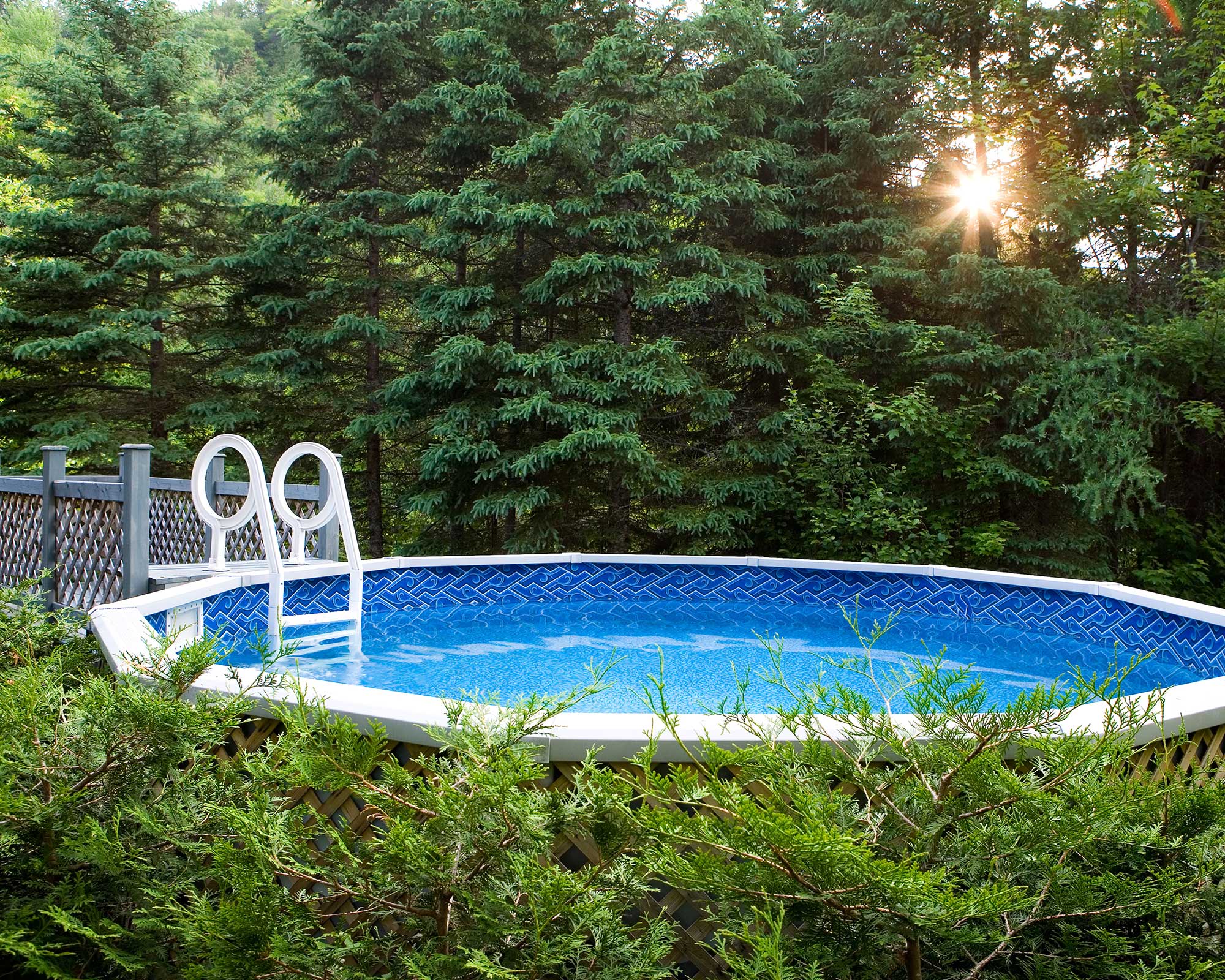
A simple guide to above ground pool maintenance
Follow these steps and you'll soon know how to maintain an above ground pool and keep yours fresher for longer – it's no more complicated than an inground pool maintenance routine.
1. Check and adjust the chemical balance regularly
Even the best above ground pools require sanitizer – usually chlorine or bromine – to be added to the water which kills bacteria and keeps it fresh and clear. According to Lowe's, chlorine levels should be kept between 1 and 4 parts per million (ppm).
You also need the pH of the water to be kept at an optimal level (which is 7.4 to 7.6), as well as the alkalinity (ideally 100–150 ppm) – this ensures the sanitizer chemicals work effectively. Check your water's levels regularly using test strips – at least once a week or more – and adjust accordingly. Always wear protective clothing when handling pool chemicals.
Checking the cyanuric acid levels at least once a month and balancing accordingly is also important for the overall health of your pool's water. Keep it between 30 and 50 ppm, says Swim University. Don't forget about calcium hardness, too, which should be between 175 ppm and 225 ppm if your pool has a vinyl or fiberglass liner. Keep it between 200 ppm and 275 ppm for plaster or concrete pools, Swim University adds.
Once a week, you can use a pool shock – this is basically a heavier dose of sanitizer. Remember to test the water chemistry after the treatment before you jump back in to ensure it's safe to do so – you'll usually need to wait a while first.
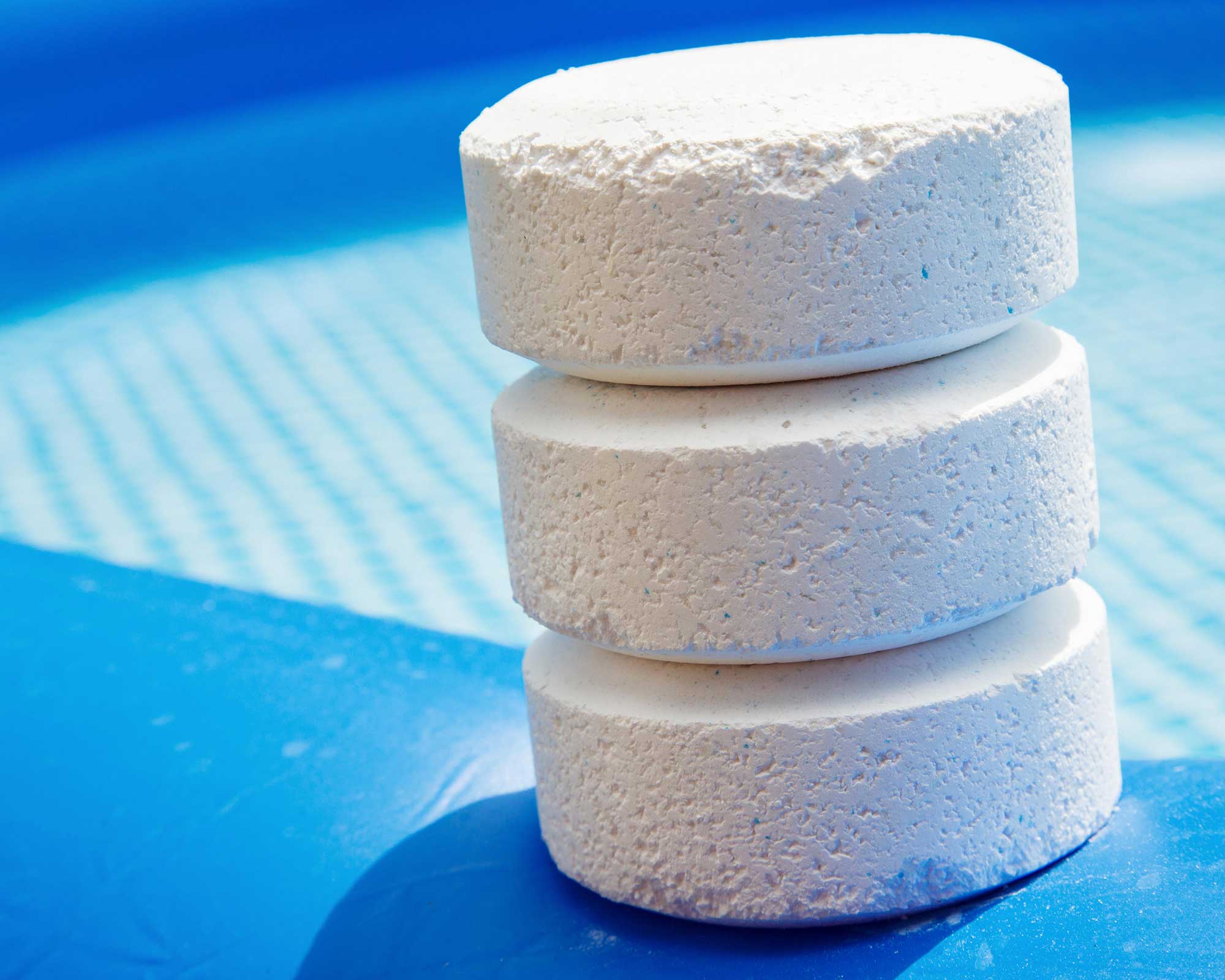
2. Keep the water moving
Just like inground pools, above ground pools have pumps and filters which keep the water (and any added chemicals) circulating and slow the growth of bacteria and pool algae.
During swim season, keep the pump running for at least eight hours a day. Clear out skimmer baskets once or twice weekly, and don't forget to clean the filter regularly, too.
Cartridge filters can be removed and rinsed once a week or so (remember to shut off the pump and power first), or soaked in a dedicated pool cartridge filter cleaner for a more thorough clean.
DE, sand, or glass filters need 'backwashing' and 'rinsing' – a setting that can be selected on your pool filter's multiport valve – check the manufacturer's instructions for specifics for your product. This should be done two or three times per swim season.
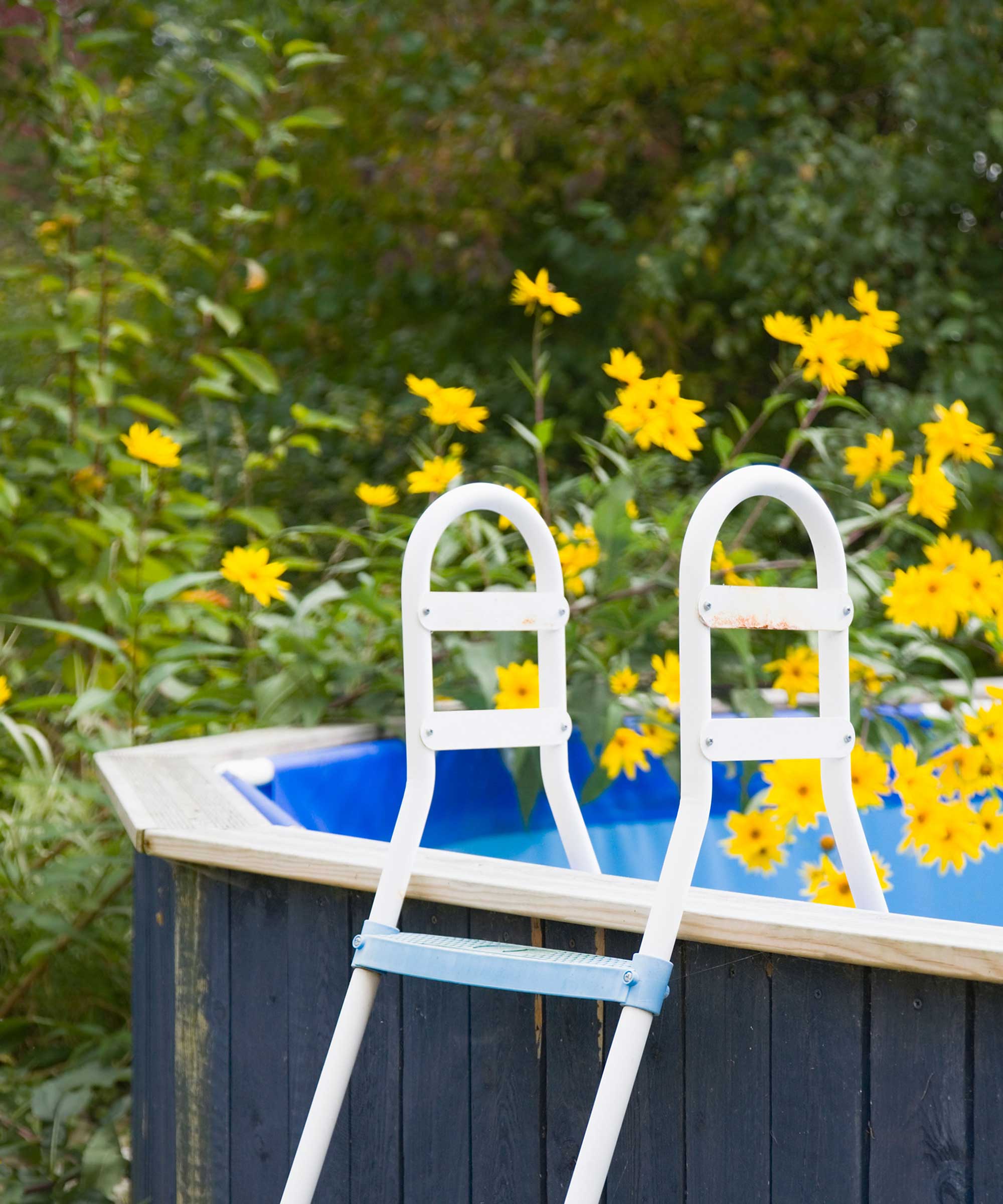
3. Vacuum your above ground pool
Learning how to vacuum a pool is crucial for keeping the water sparkling.
The best pool vacuums are just like a hoover you'd use indoors to remove dirt and debris from the floor – but they work underwater, and are attached to a telescopic pool so you can maneuver them around easily. This aspect of above ground pool maintenance should be done once a week.
You can also invest in a robotic pool vacuum specifically designed for above ground pools – a good option if you're looking for low maintenance garden ideas.
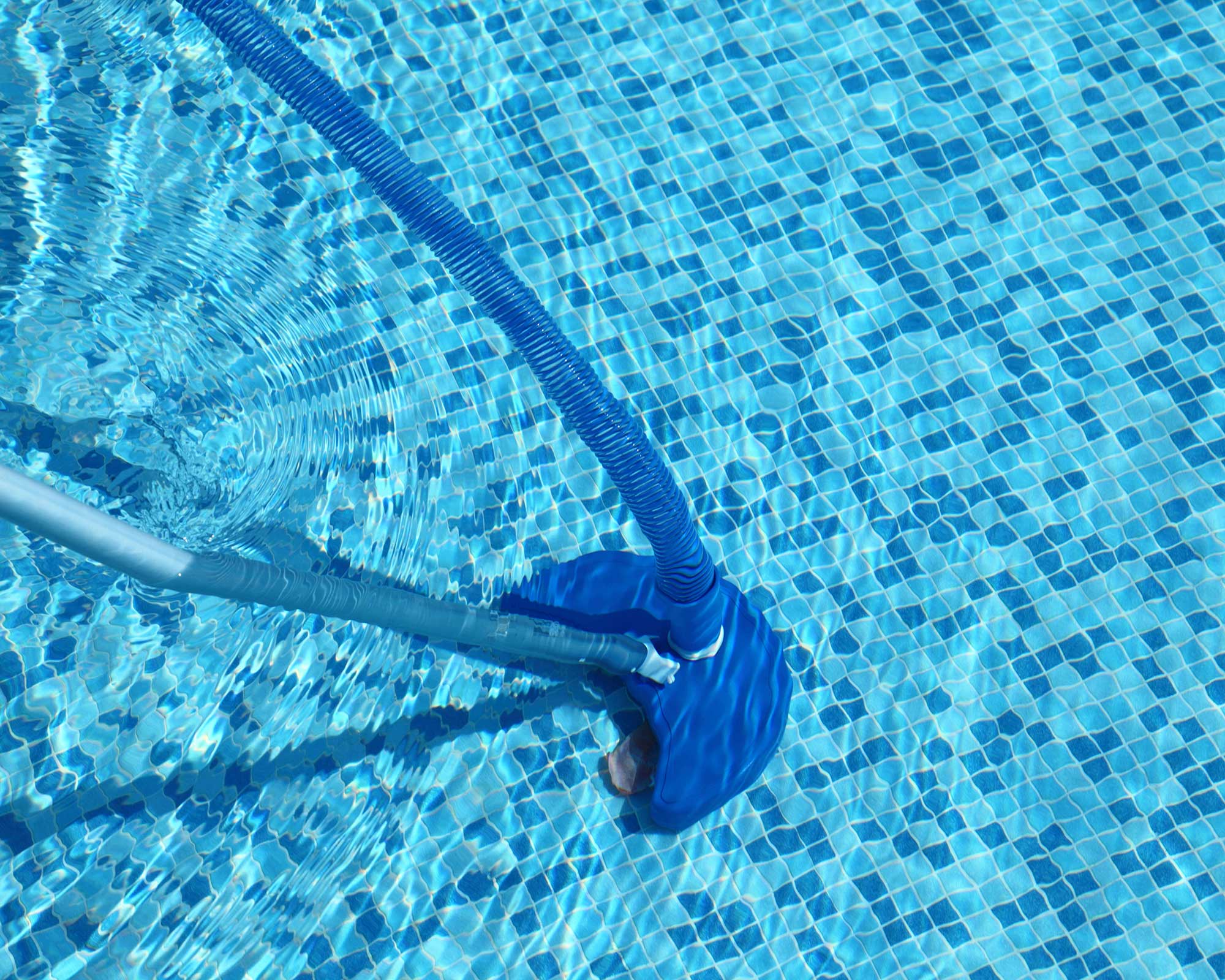
4. Brush the sides of your pool
Investing in a pool brush and giving the bottom and sides of your above ground pool a good scrub is also important for keeping it clean and algae-free. Brushing should be done a few times a week, more if you're using your pool heavily – such as after a pool party.
Add a skimmer net to your above ground pool maintenance toolkit, too – a must for fishing out fallen leaves.
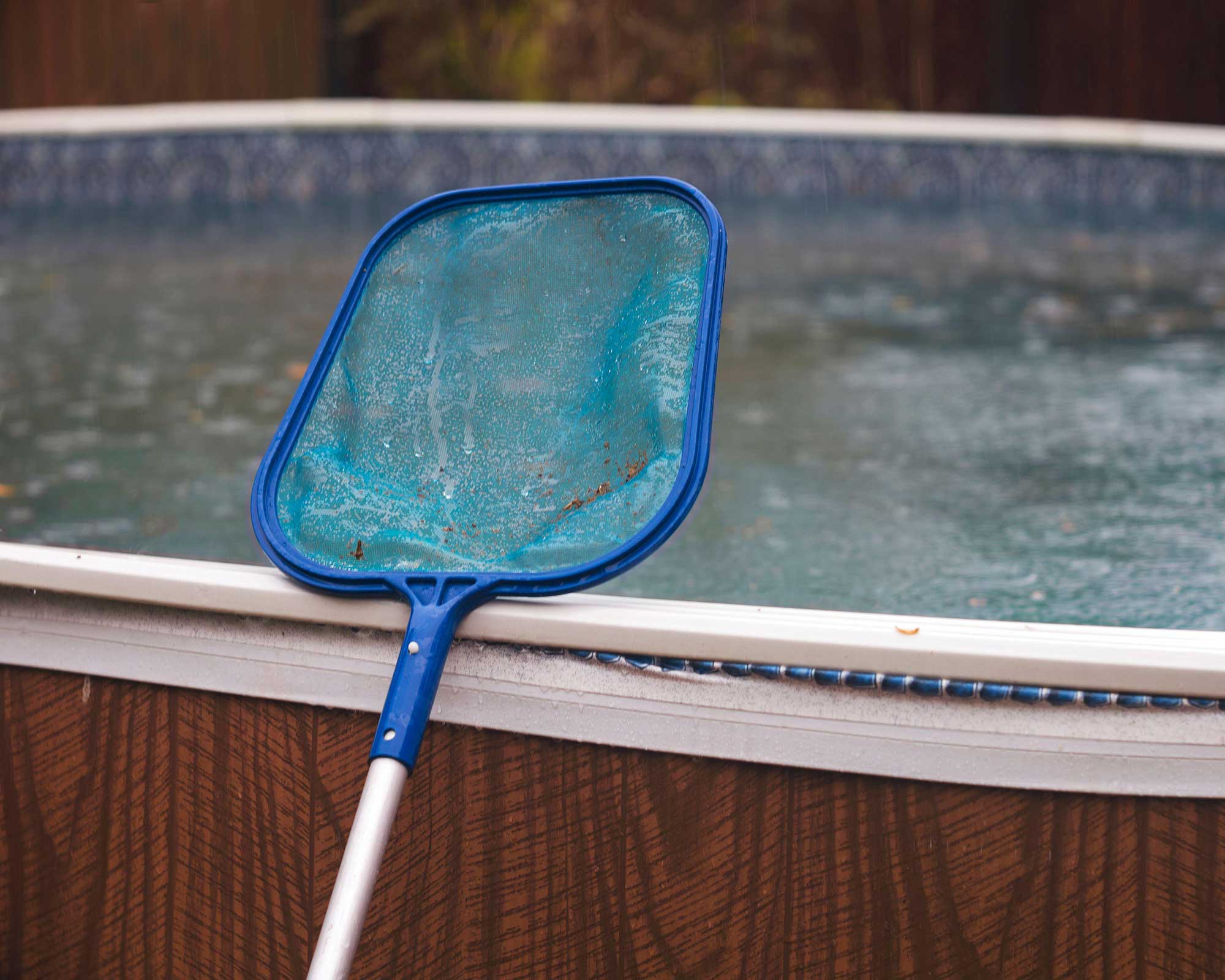
5. Get it serviced by a professional
'Above ground pools need many of the same repairs as other pools, such as filtration repair and tune-ups for the heater or pump,' says HomeAdvisor.
Because of this, it's always a good idea to get your above ground pool checked over by a professional from time to time – once a year is a good approach. This will ensure that everything is working as it should or can be repaired before further damage ensues, meaning the life of your pool can be extended.
However, there is one job you may not need to call in a pro for: it's possible to find a leak in an above ground pool and do a quick fix yourself if you have a vinyl liner. Our guide explains how.
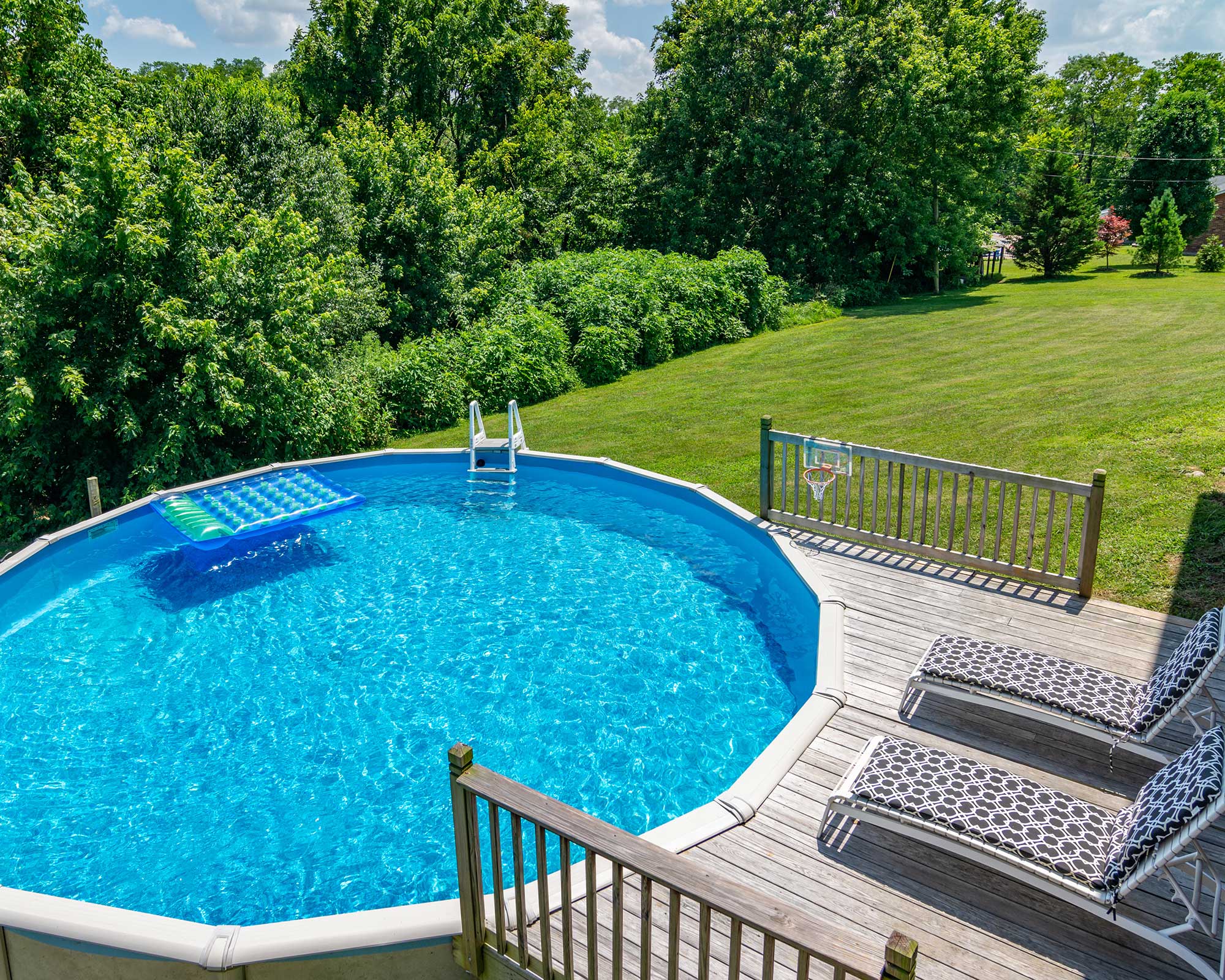
How often should you replace the water in an above ground pool?
If you have very cold winters, want to avoid the hassle of winterizing a pool, or simply want a bit of extra space in your yard during the colder season, you may wish to dismantle your above ground pool. Before you do this, naturally you'll need to drain it and then refill it with fresh water next season.
However, if you decide to keep your pool up all year round, there may come a time where you want to drain it partially or even completely – usually if the water is proving too difficult to balance due to a build-up of byproducts from cleaning chemicals, or if your cyanuric acid levels need bringing down.
Before draining water from your pool, remember to check your local regulations for where to dispose of it properly.

The garden was always a big part of Holly's life growing up, as was the surrounding New Forest where she lived. Her appreciation for the great outdoors has only grown since then. She's been an allotment keeper, a professional gardener, and a botanical illustrator – plants are her passion.
